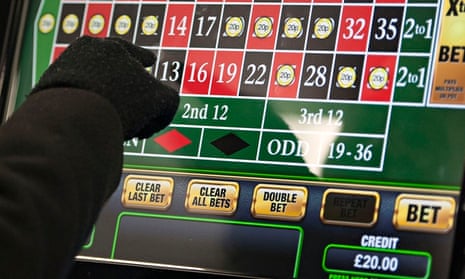Last year, for the first time, the US Diagnostic and Statistical Manual of Mental Disorders recognised gambling as an addiction, putting it on a par with drugs and alcohol. Like other addictions, gambling addiction is the consequence of a complex interplay between an individual and a product. But while the betting industry claims it would like to encourage “responsible gambling”, these semantics imply that those who become addicted to their products are entirely to blame, and that their products are not.
The very notion of “responsible gambling” suggests those who become addicted are simply an irresponsible, feckless minority rather than people who are mentally ill as a result of, in part, engaging with a gambling product. The “responsible gambling” narrative is one that seeks to absolve the betting industry of blame, as it is centred on how the industry can help people gamble responsibly. This shifts the focus away from whether operators are behaving responsibly with the products they offer.
The UK government’s response to pressure to restrict fixed-odds betting terminals (FOBTs) has mainly dealt with helping “problem gamblers”, but what is of real concern is how a gambling product of this type, which is essentially a hybrid of roulette and other games on a digital machine, is inducing an unhealthy gambling style in a significant proportion of the betting shop customers who play them.
As a former addict, I remember the accessibility of FOBTs being a particular problem. It is very difficult to walk down any parade of shops without passing a betting shop. Once I clocked it, I started to justify going in: “Just a tenner, I’ll only do this and then I’ll quit.” An hour later and I would have nothing left in my bank account.
Scenarios like this occurred with regularity for about four years, until I finally hit rock bottom. I had no access to credit, no money in my bank account, and I had lied to my family and friends for years about my reasons for borrowing money. While everything else slipped away as I became more and more addicted, I saw FOBTs as my solace rather than the root of my problems. At this point I had no money left, which took away my only escape, leaving me to face up to the reality of where FOBTs had taken me. If it had not been for the intervention of my family I may have turned to crime or taken my own life.
Forthcoming research from the Responsible Gambling Trust (RGT), which the government has disclosed will form the basis for future policies, explores how to help players “stay in control” while playing FOBTs. Like the bookmakers, the trust appears to believe that only a minority of people are problem gamblers, therefore everyone else who uses FOBTs must do so responsibly. The research is not about the product itself but on “problem gambling”, and will therefore not get to the bottom of what makes FOBTs addictive or to what extent they are harmful. The option to assess the impact of the addictive contents itself was avoided, as the trust denied Cambridge University access to a live terminal to conduct a neurological study. Is it any wonder that at the time this research was commissioned, the chair of the RGT was also the chair of the Association of British Bookmakers?
What we do already know is that FOBTs host a lethal combination of addictive content and the ability to gamble up to £100 every 20 seconds. The most popular game, roulette, is a casino table game that has been refined over centuries. Blaise Pascal’s attempt to produce a perpetual motion machine led to the creation of the first roulette wheel in the 17th century. From its more primitive form, roulette grew through refinement to become so addictive and compelling that by the 19th century it had spread across Europe and the US, engrossing even Fyodor Dostoyevsky whose novella The Gambler reflects his own addiction to the game. It was outlawed in most of Europe by 1860.
More than 150 years later, British high streets are deluged with clusters of betting shops offering roulette on FOBTs that is played five times faster than in a casino. This has led to 93 councils clubbing together under the Sustainable Communities Act in a bid to remove roulette from the high street. Led by Newham, which has 86 betting shops – each with the maximum of four FOBTs – they are calling on the government to reduce the maximum stake to £2 a spin. This would bring FOBTs in line with all other gambling machines in easily accessible locations and, crucially, remove the addictive roulette content.
Thankfully I received treatment for my addiction, and six months later I stopped gambling completely and have not gambled for four-and-a-half years. But treatment services in Britain are chronically underfunded. It is not uncommon for waiting lists for treatment to be longer than six months – treatment that is funded by the industry through the RGT.
The gambling industry contributes just £9.37 per problem gambler, compared with the NHS spend per alcoholic of £200, and per drug addict of £1,200. If the government started to take responsibility for treating gambling addicts, their interest would be in curtailing the most addictive and harmful gambling products. But the current system, which absolves the government of responsibility, serves only the interests of the betting industry at the expense of gambling addicts and our high streets.











